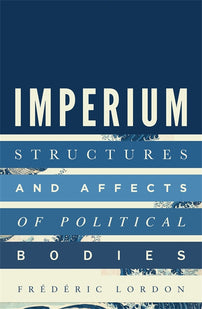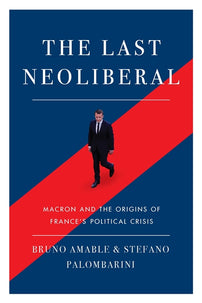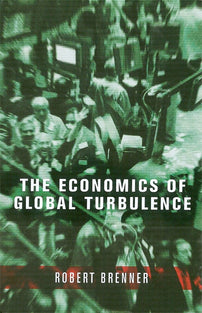Animal Firm
Emmanuel Macron's campaign to be re-elected French President has come under increasing strain in recent weeks following the so-called “the McKinsey Affair,” named after the giant American consulting firm that was paid enormous sums by the French government for reports that were often completely useless. Frédéric Lordon asks what the controversy says about the state in contemporary capitalism, and what the affair's effects on the forthcoming French elections will be.

‘Obviously they stuffed themselves like pigs’. ‘They’, meaning McKinsey consultants [recently exposed in the French media as having been paid enormous sums for “reports” that were often completely useless]. The statement ‘comes straight from a man at the heart of the system’. We don’t know who the man is, but we do know who reported his words. It was Jean-Dominique Merchet, an unusual editorialist, being recognised by the ‘editorialist’ community despite often deviating from its uniformly imbecilic line. In this case, the quality of the reporter makes it more difficult to dismiss the veracity of what is reported as conspiracy – by the likes of Gilles Le Gendre[1] or a conspiracy specialist on France Inter. So we can be reasonably sure of this: yes, like pigs.
This is all the more true since the McKinsey pigsty is in fact only a particular embodiment of the general pigsty that has the presentable name of ‘neoliberal capitalism’. Neoliberal capitalism is a form of organisation of society designed to make it entirely available for the enjoyment of a handful of pigs – gathered under the presentable name of ‘capital’.
Here, however, things become a bit more complicated, especially in terms of what is at stake between the state and capital. The usual vision of simple liberalism placed the two in a relationship of antagonism: the state asserts its own logic, which is not necessarily that of capital and is sometimes contradictory to it; the state institutionalises, regulates, even legislates – in short, opposes. Capital dreams of its demise. Neoliberalism has the subtle difference in that capital does not achieve its ends against the state but in its own ways. Society is made available by a state which has made itself available. And that means great enjoyment in the pigsty.
Subjects of the Firm
Nevertheless, we may have a moment of doubt. To speak of a new relationship between state and capital supposes (logically) two distinct entities. But what should we think when serviceability turns into interpenetration and, when this crosses a critical threshold, we end up not knowing who is what? When an investment banker becomes president, when the same people move indifferently from economic to political positions of power, when conflicts of interest spread like mildew or phylloxera, and now when consulting firms take over public services: State? Capital? State? Ultra-neoliberalism? Words begin to fail us.
Words maybe, but not nicknames. We know McKinsey’s nickname: the Firm. The Firm is also the nickname that the handful of sharp-shoe knuckleheads who surrounded Macron in 2017 have complacently given themselves. The coincidence obviously owes nothing to chance. In the general lack of distinction, a distressingly poor lack of imagination is shown on each side. In reality, it’s a little more than that. ‘The Firm’ is, if not the new name, at least the new dream state for society. First experimented with in elite communities, the ‘Firm’ form is now envisaged for the whole community.
We have heard analyses that dwell on the ‘emptiness’ of Macron’s discourse, even his ‘absence of ideology’. These diagnoses are as false as they are dangerous. Strident repetition of the word ‘project’ was grotesque but not empty of content. As none of this content was presentable, it was clearly important to cover it up with words that said nothing – but logomachy is second nature to the sharp shoes that emerge from Sciences Po or the business school HEC. And there is a project: to make us subjects of the Firm.
Downloading the MonPsy app in case of distress, writing dozens of motivation letters to escape from Parcoursup,[2] having to flash a QR code for the slightest movement, getting used to talking to robots: this is how the subjects of the Firm will live. In the moments that they status is not marked as ‘available’.
The two paths of capital
We know the classic form of capitalist relation: exploitation as a wage-earner. Neoliberalism has added another, at least as violent: demolition as a user. Make no mistake about it: demolition is just another form of making people ‘available’ – in fact its precondition. So much so that capital now has two paths: the direct path of wage-earners, bled dry for the shareholders; and the indirect path of users abandoned for ‘investors’ – those benefactors whom we will never finish thanking for agreeing to make up for our incompetence by subscribing to public debt. And we would be completely ungrateful not to satisfy them in every way: by agreeing with them that ‘the state is living beyond its means’ and that we will have to give up our luxurious habits. By closing schools, hospitals, crèches, post offices, courts – all needless luxuries. And subjecting those that remain to legitimate rigours, in fact: to the self-evidence of simple, i.e. neo-managerial, rationality.
And yet – huge surprise – this rationality, that of the ‘investors’, is formally the same as the other, that of the ‘shareholder’. In both cases, it commands a reduction in money – when this goes to the population. On one side we have ‘restructuring plans’, relocations, deregulation and wage compression. On the other, cutbacks, general closures, and application of the same productivist knout to do ever more with ever less. Maximisation of the cash flows received by capital, either directly via dividends, or indirectly via the appreciation of government securities on the bond markets.
And now, surprise after surprise: at the end of these two channels, we find a single entity, financial capital. The only truly guiding body in the world of the Firm, the sole repository of what its subjects are invited to recognise as ‘rationality’. In the name of which, consultancy firms are taking over the running of public services.
And, logically, at the end of the day, a single standard of procedures applicable to everything. For instance, given how disgusting the Orpéa and Korian scandals are,[3] it should have been possible, in a society whose media had not yet been completely ‘Firmed’, to focus not just on a particular case but on the general truth of the ‘project’, to incriminate it definitively, given that the situation of the public EHPADs is hardly more glowing. Cries of triumph from the sharp shoes: ‘you can see that private property isn’t involved’. Well, it is. Two paths, no doubt, but only one pigsty at the end of the road – where people ‘stuff themselves’ with cash and the human remains crushed inside.
In accordance with the steady harmonisation of the neoliberal capital-state, the two initially different paths are now coming together until they merge completely. The organised impoverishment (demolition) of public services is clearly preparing the ground for the entry of private services, the palpable fact of ‘the state’s’ essential negligence leading, by simple deduction, to that of the essential superiority of the ‘company’. Then we get private clinics, public schools, soon private universities, Parcoursup coaching sharks, all kinds of ‘platforms’, capitalised supplementary pensions, etc., all admirable initiatives that substitute shareholder rationality for neo-managerial rationality – but it’s the same thing! And of course, at the end of the list, McKinsey – metonymy of the organisation of the company-firm by capital for capital.
To speak of organisation is no speculation: it is the logical consequence of an overall vision – that of the Firm (of the ‘partners’). The state fails, the private sector succeeds. This is the only idea that fills the brains of the capital-state. Olivier Véran’s[4] first move was to salute the performance of consultancy firms in fitting out the medical TGVs,[5] which was in fact carried out by the railway workers and civil servants of the AP-HP.[6] It’s a reflex. From Véran to Macron, via the toxic Kohler and the grotesque Attal,[7] all these state spirits no longer bet a kopek on the state, and have chosen their camp. The state will be demolished and its functions handed over to the private sector. And then they will themselves turn (or return) to the private sector. The fact that they have extended the domain of exploitation as never before will earn them due recognition – when the channels are properly organised, the pigsty is not ungrateful.
[book-strip index="1" style="display"]‘Firm and citizenship’ (a snapshot)
But what do people think in the Firm’s bunkers? In normal times, the ‘partners’ would have no cause at all for concern. But this is a campaign. And the stupid people are getting excited over nothing. So, press conferences are being held, and Amélie de Montchalin, guardian of the DITP,[8] the Firm’s operational reactor in the state, is under pressure. She was supposedly sent out with a fire extinguisher. But such people don’t know how to lie and they revert to type: ‘We’re going to teach a lot of people to read the Senate report’. It’s always so friendly, without fuss, and at least we know who we’re dealing with. As for Macron – Benalla once, Benalla forever (‘Let them take us to court...!’)[9]
For those still struggling to grasp Animal Firm’s idea of democracy, there is this choice information that the government has commissioned consulting firms to organise ‘citizens’ consultations’. This is no longer a closing of the loop, it is almost an artistic gesture, a contemporary ‘performance’. At first, you think you’re dreaming, and indeed you have to knock yourself on the head a couple of times to convince yourself that you’re awake. And, even then, you don’t know if it’s the most anecdotal fact, the most grotesque, or the most central and significant. In any case, we see what ‘coherence’ means. The coherence to which these people want to deliver the whole society. You really have to be very limited, or governmental, to see the McKinsey affair as nothing more than a matter of tax fraud or irregular conduct of public contracts.
A societal choice
At this point we think back to 1981, when some people anticipated Russian tanks on the Place de la Concorde, and others prophesied the passage from darkness to light or an imminent change of life. Already there was talk of a choice between ‘models of society’. We know what happened next. But this sequence does not prevent the problems from arising in all their generality. The problems of the society we want, in particular. A choice whose acuteness today is out of all proportion to forty years ago, as over the past four decades the nightmare has become considerably more precise. We owe it to Macron to have brought it to an unprecedented degree of clarity. The pigsty is going to destroy us all, except for the ‘partners’ and the hallucinated members of the toxic class who serve as their base and want to ‘believe’ in the fantasy to the end.
As for those refractory souls who don’t want to have to sing their motivation to beg for servitude, or to end up as pig food, and whom McKinsey-style assisted democracy has surprisingly failed to convince, we already know how they will be treated: all-powerful police, intrusive surveillance, and prosecution of even the most trivial protests.[10] It is at this precise point that, in an expression so often used in editorials, ‘extremes meet’ – but not those to whom this junction usually refers: not, therefore, Rassemblement National and France Insoumise (which can only be qualified as ‘extreme’, and compared with the former, by individuals who have lost all political compass), but the extreme of the Firm and the extreme of the fascists, two kinds of pigs if you like, and therefore doomed to find each other again, or at least to complement each other. For, in fact, the fascisation of society is the natural complement of its Firm-isation.
The state of general atomisation and dereliction brought about by neoliberalism creates ideal conditions for the proliferation of imaginary survival solutions of identitarianism. Racist obsessions, notably Islamophobia, which we have seen expressed loudly and clearly by the government, re-polarise public debate as far away as possible from the real operations of the Firm; while in the meantime, electoral triangulation is going well.
In this matter, the procedures of Macronism have been on a par with the general start-up trend. Giving a big interview to the far right magazine Valeurs Actuelles, loudly expressing the esteem in which he holds this publication, letting it be known that he comforted Zemmour after he was insulted, taking an interest in his views on immigration, ostensibly reflecting on the historical merits of Pétain or Maurras, complacently allowing the construction of an openly fascist media empire to go ahead. All these things, which seem in complete contradiction to the refined world of the sharp shoes, are in fact absolutely coherent with its project – even if this is an indirect coherence that is, of course, vigorously denied. All the more so in this final phase of the election campaign, when it is time to resume the advantageous postures of openness and tolerance. After having methodically shifted the entire field towards the far right.
But, if we remember to see what real political stabilisers the Firm supports itself with, and that the state has its sharp shoes dipped in shit, we’ll have a fuller idea of what the words ‘societal choices’ imply in 2022. Of all the ways to make a good choice, the electoral way is perhaps the most imperfect, sometimes even the most misleading. But a mediocre means is better than no means at all.
At this point in the campaign, things have been sufficiently decanted. What remains now is: the fascist, the fascisiser, and a candidate of the left. Normally, that’s a quite simple choice.
Le Monde Diplomatique blog, 1 April 2022.
Originally published at: https://blog.mondediplo.net/leur-societe-et-la-notre
Translated by David Fernbach
[book-strip index="2" style="display"][1] Former leader of Macron’s party in the National Assembly. – Trans.
[2] Parcoursup is a highly criticised national application process for university entrance, introduced in 2018. – Trans.
[3] Orpéa and Korian are corporations brought in to manage the EHPAD network of public retirement homes, and accused of a range of malpractices, penny-penching and appalling treatment of the aged « clients ». – Trans.
[4] Olivier Véran was appointed health and social security minister in 2020. – Trans.
[5] These high-speed trains were modified to transport Covid patients. – Trans.
[6] Assistance Publique – Hôpitaux de Paris, the hospital trust catering for the Paris region. – Trans.
[7] Gabriel Attal, government spokesman for President Macron. – Trans.
[8] As its name implies, the Direction Interministérielle à la Transformation Publique, cultivates both an ongoing ‘transformation’ and corresponding contracts for the ‘conduct of change’. Following on from Sarkozy’s Révision Générale des Politiques Pübliques (RGPP), the DITP is par excellence the place of conversion of the state to neo-managerial rationality.
[9] https://en.wikipedia.org/wiki/Benalla_affair
[10] See ‘Feu sur les libertés’, Manière de voir no. 182, April-May 2022.





